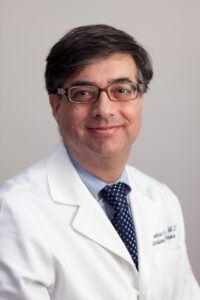 Stress cardiomyopathy is a heart illness that occurs suddenly. In about 75% of cases, it is brought on by a sudden, severe, emotional or physical stress. That is why a popular name for stress cardiomyopathy is “broken heart syndrome.” Symptoms are very similar to those of a heart attack—sudden onset of chest pain, difficulty breathing, nausea, and severe lightheadedness. Stress cardiomyopathy is not as common as heart attacks, which occur about 20 times more often.
Stress cardiomyopathy is a heart illness that occurs suddenly. In about 75% of cases, it is brought on by a sudden, severe, emotional or physical stress. That is why a popular name for stress cardiomyopathy is “broken heart syndrome.” Symptoms are very similar to those of a heart attack—sudden onset of chest pain, difficulty breathing, nausea, and severe lightheadedness. Stress cardiomyopathy is not as common as heart attacks, which occur about 20 times more often.
Examples of emotional stresses that can cause stress cardiomyopathy are having heated arguments with family members, receiving unexpected news of the death of a loved one, losing one’s job or other severe financial setbacks, and experiencing overwhelming emotional trauma such as that experienced by the survivors and families of the recent tragedy in Uvalde, Texas. Examples of physical stresses include undergoing emergency surgery or other medical procedures, being involved in a motor vehicle crash, and having a stroke.
Stress cardiomyopathy occurs most often in women older than the age of 60. The reason for this is not entirely clear. More recently there have been more cases reported in men and in younger age groups.
Patients with stress cardiomyopathy are initially quite ill and are hospitalized emergently, often in the cardiac care unit. This is because the condition causes significant weakening of heart muscle function that can lead to complications such as irregular heart rhythms or low blood pressure. Medical testing must be done to exclude heart attack as the cause of the illness because the symptoms are difficult to distinguish from a heart attack. Testing usually involves a heart catheterization to evaluate for blockages in the coronary arteries. Heart ultrasound (called an echocardiogram) shows distinctive abnormalities of heart function that help the cardiologist to diagnose this condition. The condition, once diagnosed, is treated with medications.
For most patients, heart function will start to improve in the first several days after the onset of the illness. Most patients will also feel better within days and will eventually make a complete recovery. Heart function will usually recover to normal within 4 to 8 weeks. However, some patients are critically ill, and the risk of dying as a result of the condition is about 4%, similar to patients who have a heart attack.
Once a person has recovered from stress cardiomyopathy, the outlook is excellent and is similar to that for people who have never had this condition. There is a low chance that the condition will occur again—about 3% per year.
Fredric L Ginsberg, MD, FACC, FCCP, is the Co-Medical Director and Director of Operations with the Cooper Heart Institute, Director of Nuclear Cardiology, and a Clinical Cardiologist with Cooper University Health Care. He is a Clinical Cardiologist with Cardiac Partners at Cooper and Inspira, and an Associate Professor of Medicine at Cooper Medical School of Rowan University.

